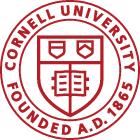- ข่าวและบทความ
- Find usIDP AustraliaIDP BahrainIDP BangladeshIDP CambodiaIDP CanadaIDP ChinaIDP EgyptIDP GhanaIDP Hong KongIDP IndiaIDP IndonesiaIDP IranIDP JordanIDP KenyaIDP KoreaIDP KuwaitIDP LebanonIDP MalaysiaIDP MauritiusIDP Middle EastIDP NepalIDP New ZealandIDP NigeriaIDP OmanIDP PakistanIDP PhilippinesIDP Saudi ArabiaIDP SingaporeIDP Sri LankaIDP TaiwanIDP ThailandIDP TurkeyIDP UAEIDP VietnamIDP Corporate
- Social
- ไทย
สถานที่
United States
คุณสมบัติ
Ph.D.
ค่าธรรมเนียม
USD24800
(2025)
ช่วงเวลา
8 Semester(s)
ภาคการศึกษาใหม่
26 August 2025
คะแนนในการยื่นสมัคร
7.0
IELTSCOURSE_INFO
Your action plan
ขั้นตอน 1
Shortlist your courses
Choose the best three courses you’re most likely to pursue.
ขั้นตอน 2
Check your eligibility
Get an instant in-principle offer for courses with the IDP FastLane tag.
ขั้นตอน 3
Apply through IDP Live
Fill out the form once and use it to apply to multiple courses.





